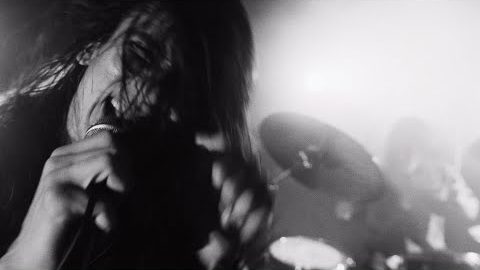
In the beginning, before the banana bread, back when few knew who Joe Wicks was and even less had heard of Zoom, there was Tiger King, Netflix’s seven-part (plus one special) series about the life and times of Joseph Allen Maldonado-Passage aka Joe Exotic. For the very few uninitiated among you (where have you been?), Exotic is a former zoo operator from Oklahoma who makes ’80s wrestler Randy Savage appear understated. He makes Dog the Bounty Hunter appear shy. Joe – with his Texan drawl, his polyamorous relationships and a penchant for guns and meth – is the bonkers first decade of Louis Theroux’s filmmaking distilled into human form.
Tiger King: Murder, Mayhem and Madness – to give the show its full title – turned Joe into an icon. A crazy dude for crazy times. His story entertained us, surprised us, and served up a cast of characters almost as iconic as the titular monarch himself. The series ended with Joe in prison – on account of his plotting to have nemesis Carole Baskin murdered. Later, a campaign for his pardon would reach the desk of then US President Donald Trump.
Now – more than a year on – we have Shooting Joe Exotic, Theroux’s 90-minute mediation on what the Netflix series teaches us about truth. Featuring a raft of unseen footage (Joe had been profiled by the British documentarian as part of a larger piece about the private ownership of exotic animals in 2011), new interviews and a chance for the vilified to finally have their say, it is the show that this subject sorely needs. Here’s what we learned…

Tiger King didn’t tell the full story
Many who were keen for more Joe Exotic may have found their way to Wondery’s excellent podcast Joe Exotic: Tiger King. Hosted by journalist Robert Moor, the six-episode series dug much deeper than the Netflix show, principally on the details of the murder-for-hire plot that led to Exotic’s incarceration. Theroux’s show goes even further, sharing unsettling details of his upbringing; for the first time, an interview with his estranged older brother; a series of conversations with the hapless law firm lobbying for Exotic’s release and footage of their charge abusing animals in his care. Little will change your mind about the unquestionably charismatic Joe Exotic like the – thankfully censored – footage of him shooting a horse in the head.
Theroux’s show is (some) justice for Carole Baskin
At the heart of Tiger King was the ever-escalating feud between Exotic and Carole Baskin, CEO of Big Cat Rescue, a non-profit animal sanctuary based near Tampa, Florida. It started with Baskin lobbying shopping malls in an effort to stop Exotic’s touring petting zoo in its tracks. It ended with Baskin taking ownership of the jailed Exotic’s zoo in Oklahoma. It’s currently up for sale, with the proviso that the land cannot be used as a tourist attraction.
As Baskin and husband Howard take Louis on a tour of the site – walls daubed with misogynist graffiti, much of the park now trashed, allegedly by departing owner Jeff Lowe (who took over from Exotic) – she reveals how the Netflix series impacted her life.
Threatening abuse on social media is read out, until husband Howard asks – but really asserts – if the BBC have got enough. Then, Theroux turns the conversation to the baseless accusation that Baskin killed her second husband Don Lewis in 1997 and subsequently fed him to her big cats. Howard again steps in. Elsewhere in the programme, Exotic’s law team argue that Baskin must be guilty because of “the way that she talks.” Tiger King recounted the suffering of many sentient creatures, most of them four-legged. But Baskin has claim to as much grievance as any.
Netflix must revisit their approach to documentary filmmaking
In the practice of amplifying the profile of a convicted felon – but not including all of the facts – Netflix has been here before. 2015’s Making A Murder gave a compelling case for the wrongdoing of the Manitowoc Police Department in the murder conviction of Steven Avery and his nephew Brendan Dassey. 500,000 signatures were eventually presented to the White House in a bid to win the pair their freedom, despite omitting from the series vast amounts of evidence that point to the 58-year-old’s guilt.
Theroux’s more focused look at the Tiger King story – with the exception of a bumbling Louis finding a photo of an erect penis in the wreckage of Exotic’s former home – eschews the tawdry details that often obscured any clear point made by the Netflix series. It exposes how much the Netflix series said, without saying very much at all. Like Avery’s moment in the sun, the preposterous campaign to ‘Free Joe Exotic’ is on them. Too often the streaming giant presents true crime content to us that says ‘Woah, look at this crazy shit!’ Too often their approach to documentary is to put a bomb under a scandal – a messy, irresponsible, even tragic approach to filmmaking when real lives are concerned. It must stop.
The campaign to ‘Free Joe Exotic’ forces us to ask questions of ourselves
Theroux’s deep dive asks a lot of questions – sometimes even of himself. Much like the documentarian’s public hand-wringing over being taken in by the prolific sex offender Jimmy Savile during a 2000 film, Theroux also struggled to get to grips with Exotic when they first met in 2011. In unseen footage, we see a side of Exotic we did rarely in Tiger King. Cruel, arrogant, disturbing – there’s enough previously unaired footage of the zoo owner making threats on Baskin’s life to suggest that the signs were there.
This return to the Exotic story challenges the viewer too. What does our elevation of Joe Exotic to meme-ified cult figure say about our warped fascination with the poor, the uneducated, the ill and the tragic? What does the vilification of Carole Baskin say about our society’s treatment of women? What does our fascination with Tiger King say about the ever constant teetering of true crime content on the line that divides information and entertainment? Even after Louis Theroux’s fascinating new take, there are many questions still to answer.
The post ‘Louis Theroux: Shooting Joe Exotic’: four key takeaways from the ‘Tiger King’ follow-up appeared first on NME.







